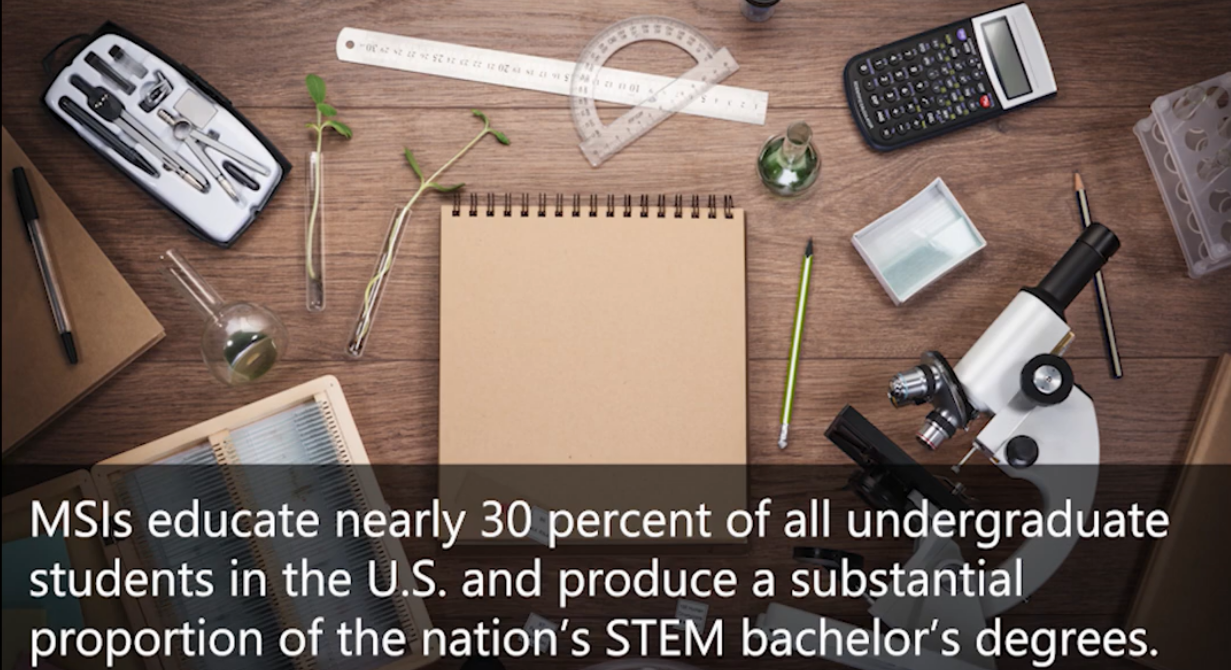Education Reform: The Equity and Excellence Project
“An investment in knowledge always pays the best interest.” – Benjamin Franklin
All across the country, people are gathering to observe an annual academic rite of passage: graduation.
In a scene that will be played out countless times during this season of celebration, family and friends will dutifully take their seats in auditoriums and open fields around the nation and proudly look on as their loved ones walk across stages to receive their diplomas or degrees and, finally, turn the tassel on their graduation caps.
This tradition holds much more significance than its primary function as the formal recognition of a student’s academic achievement. It is also firmly rooted in our American belief that education—particularly higher education—is the key to greater opportunity and the chance to live the American dream.
The era when a high school diploma was enough to climb the ladder into America’s middle class is long gone. In today’s increasingly high-tech society, it is a college education, or degree, that has become the minimum requirement for that climb up our nation’s social and economic opportunity ladders. Access to college, therefore, cannot remain a privilege afforded to a few when it has become a prerequisite to achieve greater success by the many.
In recognition of this enduring state of academic affairs, the National Urban League is spearheading the “Equity and Excellence Project.” The project—which has six areas of academic focus tightly related to our organization’s mission, including common core standards and improved access to high-quality curricula and effective teachers—has also made college attainment, and most importantly, completion one of its priorities.
The higher education initiative of the “Equity and Excellence” project is currently being run at three National Urban League affiliates: The Urban League of Greater Pittsburgh, The Urban League of Springfield and the Urban League of Lexington-Fayette County. In those communities, communities that mirror so many Black and Brown communities in our country, national and local advocacy and engagement efforts are underway to ensure that more of our young people go to college.
Right now, there is much to celebrate in our country when it comes to academic achievement in African-American and Latino communities. Today, we enjoy the highest high school graduation rates in history.
More students of color are in college and dropout rates are at historic lows. But more work lies ahead. Despite the fact that more Blacks and Hispanics are getting a college education than ever before, there is a gap in postsecondary attainment. In 2013, about 15 percent of Hispanics had a bachelor’s degree or higher, degree attainment was at 20 percent for African Americans and 40 percent for whites, according to recent Pew Research Center analysis.
When a young man or woman is denied access to opportunity through education, we all lose. That potential graduate loses a well-known and well-worn path to individual success. College Board research demonstrated that people with bachelor degrees earned over $21,000 more than high school graduates. People with some college and no postsecondary degree earned 14 percent more than high school graduates who worked full time. When young people are not obtaining postsecondary degrees, our nation suffers from the loss of their talent, their increased tax revenues, their civic engagement and more.
As was often quoted by President John F. Kennedy, “a rising tide lifts all boats.”
We need to rethink our funding of grants, we need to take a serious look at our student loan system, we—as a nation—need to confront head on all the obstacles to equity in access to quality postsecondary education.
The return on our investment of the time, effort and money necessary to increase college attainment and completion, would be a competitive American workforce, a stronger economy and thriving communities.
Marc H. Morial is President and CEO,







